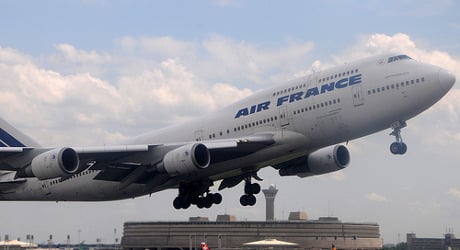Flights to and from major French cities were set to be disrupted on Tuesday due to a strike called by key unions against Hollande's proposal to cut business taxes to try and create jobs.
The country's DGAC civil aviation authority said airlines were reducing their flights into and out of Paris airports by 30 percent and those to and from the cities of Lyon, Marseille, Nice and Toulouse by 20 percent.
"Disruptions are expected throughout France," the DGAC said in a statement, pointing out that unions representing air traffic controllers had asked their members to go on strike as part of a wider call for all public sector employees to stop work.
Four unions are protesting against Hollande's "Responsibility Pact", which seeks to implement 30 billion euros ($42 billion) in cuts to payroll taxes and 50 billion euros in spending cuts over three years to kickstart growth and revitalise the eurozone's second economy.
The cuts to payroll taxes will be in return for companies pledging to create more jobs, but some unions in France are worried that firms will shirk this duty as they will not be legally obliged to hire people.
They are also worried that the massive spending cuts outlined in the pact will negatively impact the public sector.



 Please whitelist us to continue reading.
Please whitelist us to continue reading.
Member comments